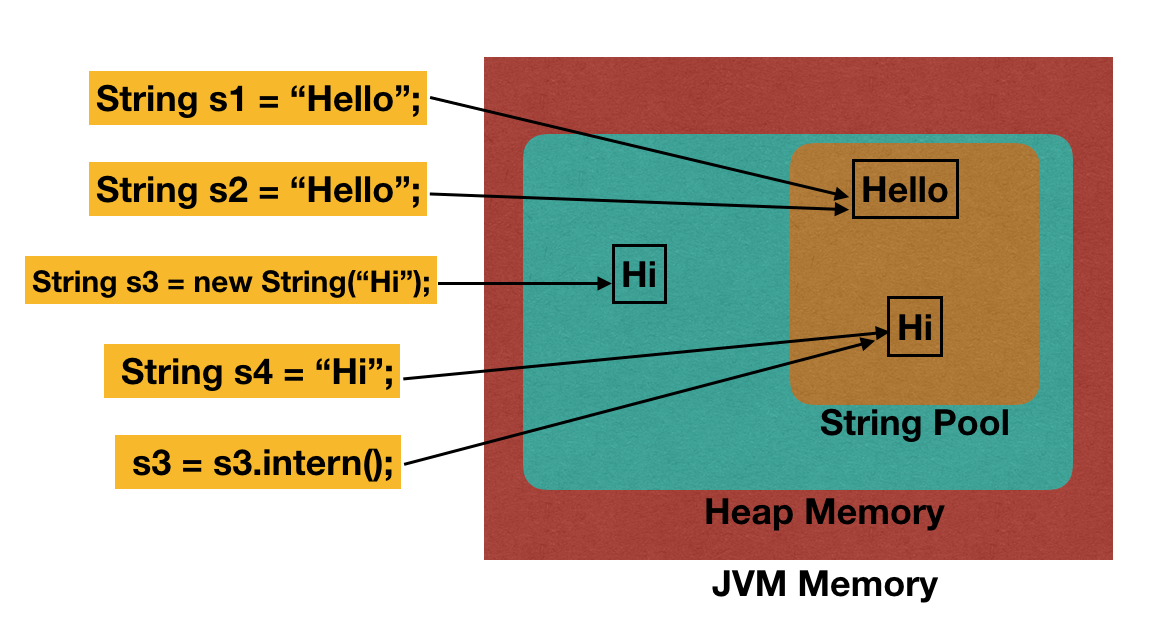Why Are Strings Immutable in Java? Best Practices and Use Instances
Why Are Strings Immutable in Java? Best Practices and Use Instances
Blog Article
Immutable Strings: A Trick Element in Ensuring Information Consistency and Dependability
In the realm of information monitoring, the significance of immutable strings can not be overemphasized. The idea of unalterable strings transcends mere formality; it is a linchpin in the facility web of information administration.
The Idea of Unalterable Strings
Unalterable strings, a fundamental principle in programming, describe strings that can not be changed once they are produced. Fundamentally, as soon as a string value is designated, any type of operation that appears to modify the string in fact develops a brand-new string. This immutability makes certain information consistency and dependability in applications, as it prevents unanticipated adjustments to the original data.
Advantages in Data Uniformity

Information uniformity is essential in numerous aspects of software application advancement, consisting of data source monitoring, multi-threaded atmospheres, and dispersed systems (Why are strings immutable in Java?). Immutable strings add dramatically to achieving this consistency by protecting against information corruption as a result of simultaneous access. In circumstances where numerous procedures or strings interact with the same information simultaneously, immutable strings serve as a protect versus race problems and synchronization problems
Furthermore, the immutability of strings streamlines debugging and testing procedures. With immutable strings, developers can rely on that when a string is set, it will stay unchanged, making it simpler to trace the source of errors and ensuring that test instances produce regular results. This integrity in data handling inevitably results in a lot more durable and steady applications.

Applying Immutable Strings
Ensuring the immutability of strings calls for a thoughtful strategy to their execution in software application development. One crucial strategy is to design string courses in a means that avoids alterations as soon as a string things is produced. By making strings unalterable, developers can enhance data consistency and reliability in their applications.
To apply unalterable strings effectively, programmers must favor producing brand-new string things instead of changing existing ones. This practice makes sure that when a string is appointed a worth, it can not be altered. Additionally, any kind of procedure that shows up to modify the string needs to create a new string with the preferred modifications rather of altering the initial.
In addition, utilizing unalterable strings can simplify concurrency administration in multi-threaded environments. Considering that immutable strings can not be transformed after production, they can be safely shared among numerous strings without the danger of data corruption.
Role in Integrity Assurance
In software application growth, the application of immutable strings plays a critical role in making sure the dependability of information operations. Unalterable strings, as soon as created, can not be changed, making certain that the data they stand for remains constant throughout the application's implementation. This immutability property offers a degree of assurance that the data being refined will not be inadvertently altered, bring about unanticipated outcomes or mistakes in the system.
By incorporating immutable strings right discover this into software application design, developers can boost the reliability of their applications by decreasing the dangers related to mutable data - Why are strings immutable in Java?. Immutable strings help in protecting against information corruption or unexpected adjustments, which can be specifically essential when managing delicate details or when data honesty is critical
In addition, using unalterable strings streamlines concurrent processing, as multiple strings can securely gain access to and share string information without the risk of one thread altering the content while an additional is reading it. This facet adds dramatically to the general dependability of the software system, making certain predictable and regular behavior in information handling operations.
Applications and System Combination
The seamless integration of immutable strings into numerous applications and systems is essential for guaranteeing durable data consistency and dependability throughout varied technical atmospheres - Why are strings immutable in Java?. Unalterable strings play an important duty in improving the integrity of information exchanges and communications within complex software program ecological communities. By integrating immutable strings right into applications, programmers can mitigate the risks linked with information meddling, unauthorized adjustments, and unintended changes, therefore fortifying the general protection position of the system
In the context of system integration, unalterable strings serve as a fundamental element for establishing protected communication channels and facilitating seamless information transfers in between various components. Their unalterable nature guarantees that information transmitted in between systems stays unmodified and verifiable, reducing the probability of incongruities or errors that could jeopardize the honesty of the whole system. Furthermore, immutable strings can improve interoperability between disparate systems by providing a standardized layout for information representation, allowing more effective information processing and exchange procedures throughout interconnected platforms. By embracing immutable strings in applications and system assimilation procedures, companies can fortify their data framework and maintain the dependability and consistency of their information assets.
Verdict
Finally, immutable strings play an essential function in maintaining information uniformity and reliability in different applications and system assimilations. By making sure that strings can not be altered when produced, the honesty of information is preserved, minimizing the danger of errors and inconsistencies. Implementing unalterable strings can dramatically boost the additional reading integrity of systems, eventually resulting in even more reputable and accurate information processing.

Report this page